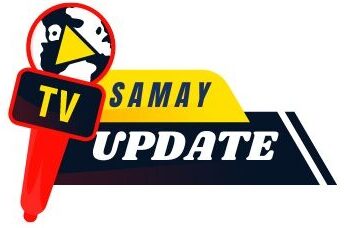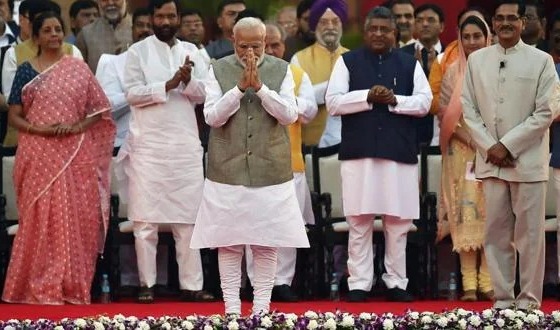Prime Minister Narendra Modi : The Government of India has included some new faces in the Council of Ministers while fulfilling the coalition dharma.
This is the third government of Narendra Modi and on Monday, continuity was given priority in the coalition dharma and some ministers of the previous government were also allocated important cabinet departments. And this included Rajnath Singh, Amit Shah ji, S Jaishankar and Nirmala Sitharaman. However, it seems that BJP has also adjusted to the new reality. And because it has given more representation to its allies in the matriarchal council.
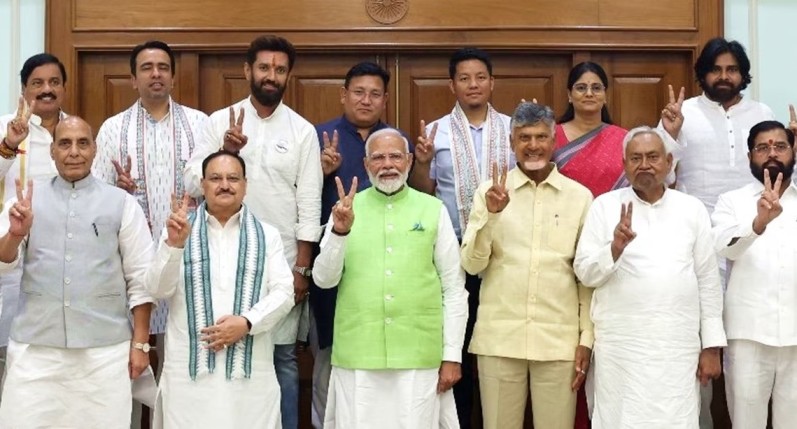
India Prime Minister Narendra Modi : Some important points from the cabinet portfolio allocation are as follows
- In the new NDA government, no changes have been made in the structure of the Cabinet Committee on Security (CCS). Also, Rajnath Singh, Amit Shah, Nirmala Sitharaman and S Jaishankar have been retained in charge of the Ministry of Defence, Home, Finance and External Affairs.
- BJP leaders JP Nadda, Shivraj Singh Chouhan and Manohar Lal Khattar along with many other new faces have been included in the cabinet. JP Nadda will also handle the health department well. Shivraj Singh Chouhan has been made the Agriculture Minister. Khattar has been made the Minister of Housing and Urban Affairs and the Minister of Power.
- Changes have also been made in the departments of Mansukh Mandaviya, Prahlal Joshi, Jyotiraditya Scindia, Gajendra Singh Shekhawat and Kiren Rijiju. And Mandaviya was also given the Ministry of Labor and Employment as well as the Ministry of Youth Affairs and Sports. And Prahlad Joshi is still the Minister of Consumer Affairs, Food and Public Distribution and the Minister of New and Renewable Energy. And Scindia has also been given the charge of the Ministry of Communications and the Ministry of Development of North Eastern Region. And Gajendra Singh Shekhawat has also been allotted the Sanskrit Ministry and the Ministry of Tourism. And Kiren Rijiju is the new Union Minister of Parliamentary Affairs and Minister of Minority Affairs.
- Prime Minister of India Narendra Modi will also handle the responsibilities of Ministry of Personnel, Public Grievances and Pensions, Department of Atomic Energy and Department of Space very well. And he is also in charge of those departments which are not allocated to any minister.
- Prime Minister Narendra Modi – Our Nitin Gadkari has retained the same Road Transport and Highways Minister, and Sarbananda Sonowal (he is Ports and Shipping and Waterways), and Mr Bhupendra Yadav as Ministers (He is Environment, Forest and Climate Change) and Mr. Virendra Kumar (Social Justice and Empowerment). And Ashwini Vaishnav will continue to be the Minister of Railways and Electronics and Information Technology and he has also been given this new department of Information and Broadcasting and Electronics.
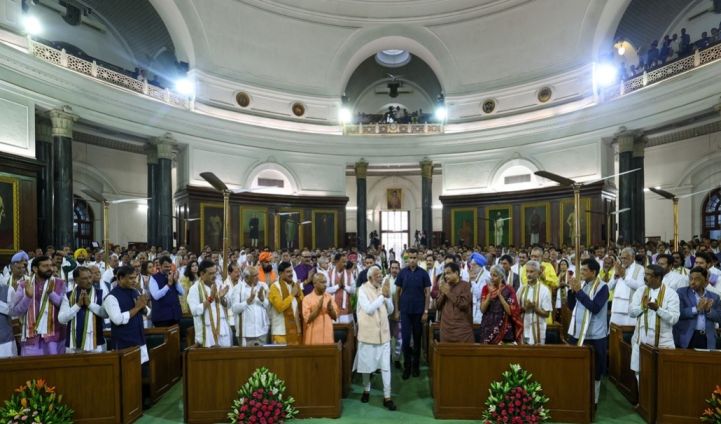
- Piyush Goyal will also continue as the Commerce and Industry Minister. Dharmendra Pradhan will continue as the Union Education Minister and Hardeep Singh Puri has retained the Petroleum and Natural Gas Ministry.
- It was Kinjarapu Ram Mohan Naidu of the Telugu Desam Party and Chirag Paswan, a very prominent leader of the Lok Janshakti Party (Ram Vilas). also been included as Cabinet Ministers with the Ministry of Civil Aviation and Food Processing Industries respectively.
- Shiv Sena leader Jadhav Prataprao Ganpatrao has been made Minister of State (Independent Charge) in the Ministry of AYUSH and Minister of State in the Ministry of Health and Family Welfare. And Janata Dal (Secular) leader and former Chief Minister HD Kumaraswamy has also been given And it is also the responsibility of the Ministry of Heavy Industries and Public Enterprises and the Ministry of Steel.
- Hindustani Awam Morcha leader Ram Ji has also been given the Ministry of Micro, Small and Medium Enterprises. And Janata Dal (United) leader Rajiv Ranjan Singh (Lalan Singh) has also been given independent charge of Panchayati Raj Ministry and Fisheries, Animal Husbandry and Entrepreneurship Ministry.
- Pemmasany Chandrasekar of TDP has been appointed as the Minister of State for Rural Development and Communications and Ramnath Thakur of Janata Dal United has been appointed as the Minister of State for Agriculture and Farmers Welfare.
- Among those who became MPs for the first time, BJP’s Suresh Gopi is the Minister of State for Petroleum and Natural Gas and Minister of State for Tourism. And Ravneet Singh Bittu is also the Minister of State for Food Processing Industries and Minister of State for Railways.
Omar Abdullah took a dig at the Bharatiya Janata Party (BJP) –Prime Minister Narendra Modi
Meanwhile, National Conference (NC) vice-president Omar Abdullah had claimed on Monday that NDA allies have not got important portfolios.
In a post on Instagram, Abdullah said that despite everyone’s talk of NDA allies pressing for a fair share in the Modi 3.0 ministry, they have no special influence in the corridors of power.
He also said that the allies did not get anything because the BJP did not leave any meaningful portfolio for them. And he also claimed that the post of Lok Sabha Speaker will also remain with the BJP.
BJP MPs have a big hold in the Prime Minister Narendra Modi 3.0 cabinet. Who met the Union Ministers
PM Modi had retained key ministers like Amit Shah, Rajnath Singh, Nirmala Sitharaman and S Jaishankar for top posts in his own cabinet.
Prime Minister Narendra Modi had retained key ministers of his new government, indicating continuity, and Amit Shah, Rajnath Singh, Nirmala Sitharaman and S Jaishankar will continue to lead the Home, Defense, Finance and Foreign Ministers respectively. And these four ministers also form an important cabinet committee on security. Whichever is chaired by the Prime Minister, he alone carries out that work.
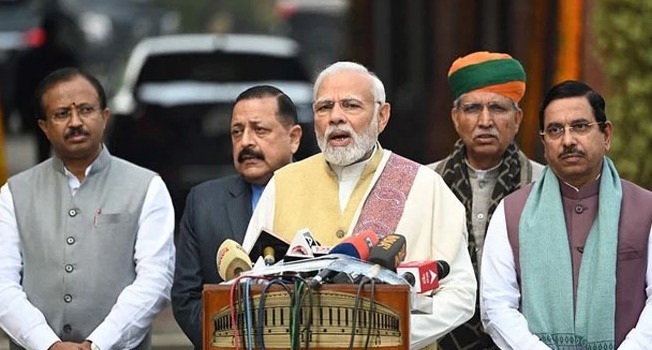
Among the few members of the new cabinet, former Madhya Pradesh Chief Minister Shivraj Singh Chauhan was given the Agriculture and Rural portfolio. And Bharatiya Janata Party (BJP) President JP Nadda returned to the Health Ministry. He had held this post during Modi ji’s first term and he became the party president.
Nitin Gadkari, who is known for the expansion of the national highway network, will continue to be in charge of the Road Transport and Highways Ministry. And former Haryana Chief Minister Manohar Lal Khattar has also been given the Housing and Urban Affairs and Power Ministry.
- Ministry of Home Affairs – Shri Amit Shah Ji
- Ministry of Defence – Rajnath Singh Ji
- Ministry of Cooperation – Amit Shah Ji
- Ministry of External Affairs – S. Jaishankar
- Ministry of Finance – Nirmala Sitharaman Ji
- Ministry of Corporate Affairs – Nirmala Sitharaman
- Ministry of Food Processing and Industries – Hon’ble Chirag Paswan
- Ministry of Labor and Employment – Mansukh Mandaviya
- Minister of Sports and Youth Affairs is – Shri Mansukh Mandaviya
- Ministry of Fertilizers and Chemicals – JP Nadda
- Ministry of Farmers Welfare and Ministry of Agriculture – Shri Shivraj Singh Chouhan
- Ministry of Rural Development – Shri Shivraj Singh Chouhan
- Ministry of Power – Manohar Lal Khattar
- Ministry of Urban Affairs and Ministry of Housing – Manohar Lal Khattar
- Ministry of Tourism – Gajendra Singh Shekhawat
- Ministry of Culture – Gajendra Singh Shekhawat
A brief introduction of some top cabinet ministers – Prime Minister Narendra Modi
Known for his political acumen and strategic skills, senior BJP leader Amit Shah has played a key role in the saffron party’s unprecedented growth, helping it cross the 300-seat mark in the 2019 Lok Sabha elections. Known as the second most influential person in the country after Prime Minister Narendra Singh Modi and a person devoted to the saffron ideology, the 59-year-old Shah emerged as the efficient organiser of the BJP, when as the party’s general secretary, the alliance won 73 seats in the 2014 Uttar Pradesh polls.
Amit Shah, who is compared to the modern-day Charankshaya, created history in 2014 by becoming the youngest president of the Bharatiya Janata Party at the age of 49 and later took over as one of the youngest Union Home Ministers in 2019 at the age of 54.
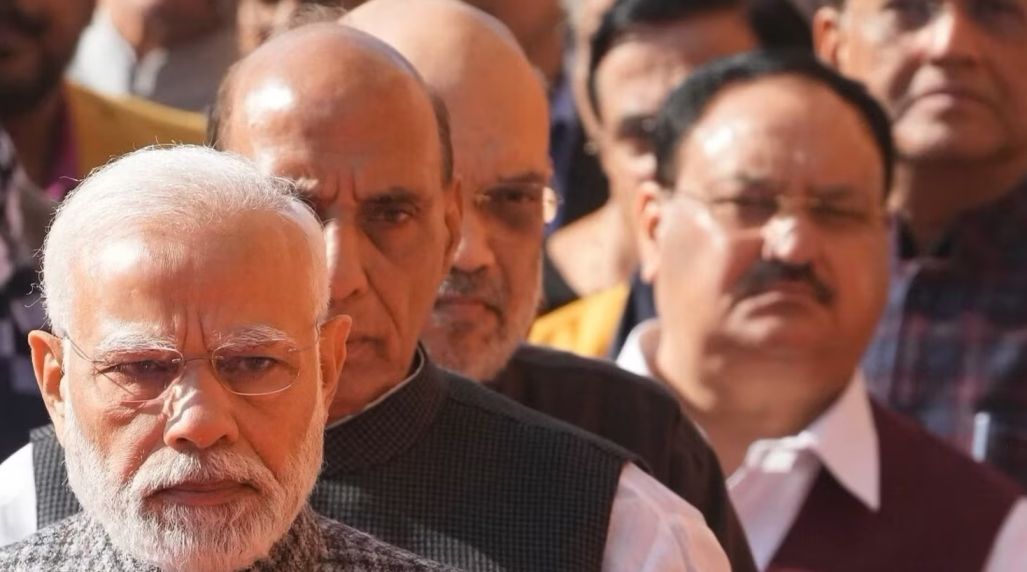
Born in 1964 in a reputed Gujarati family in Mumbai, Amit Shah’s political journey began at the age of 16, when he joined the Rashtriya Swayamsevak Sangh (RSS) in 1980. And soon after that, he got involved in the activities of the Akhil Bharatiya Vidyarthi Parishad (ABVP).
Displaying unwavering commitment to party principles, exceptional organisational skills and eloquence, Amit Shah rose rapidly and within two years became the joint secretary of the Gujarat unit of ABVP.
A grassroots strategist and political leader par excellence, Rajnath Singh is credited with expanding the BJP’s organisational network in the Hindi heartland state of Uttar Pradesh in the 1990s and the decades that followed. Hailing from the politically important Chandauli district of the state, Singh is known as a liberal face and is widely respected by leaders across party lines.
Prime Minister Narendra Modi – Singh, who for a long time was considered a disciple of senior BJP leader Atal Bihari Vajpayee, began his political career as a student activist of the Akhil Bharatiya Vidyarthi Parishad and became the National President of the BJP in 2005.
